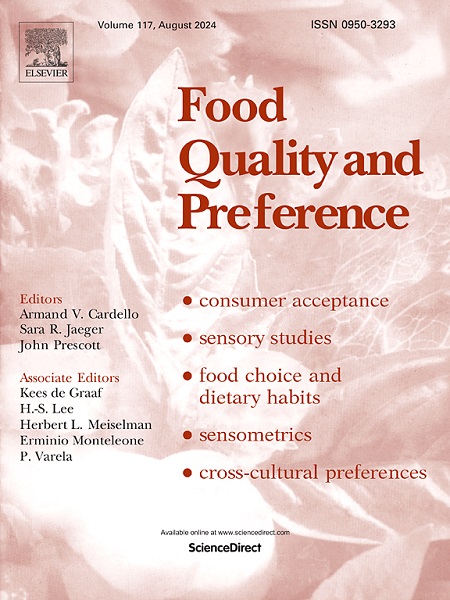Exploring the intersection of food literacy and consumer research: A review, conceptualisation, and agenda for sustainability-focused research
IF 4.9
1区 农林科学
Q1 FOOD SCIENCE & TECHNOLOGY
引用次数: 0
Abstract
The COVID-19 pandemic highlighted the importance of consumer food literacy competency as global food experiences were disrupted from individual to systemic levels. Consumer food illiteracy also acts as a barrier to achieve optimal health and sustainability. This study examined what is known about the intersectionality of food literacy and consumer research through a hybrid systematic review encompassing bibliometric and content analysis. Peer-reviewed journal publications (N = 301) meeting the inclusion criteria were analysed to consider citation, geolocational, research area, co-word, and time-phase content strategies employing VOSViewer, Microsoft Excel, and Leximancer software. Examination of the knowledge base of food literacy-consumer research reveals exponential growth in publication rates. The multidisciplinary intellectual structure of the field spans 53 diverse research areas, including consumer food label use, food consumption and choices, sustainability, health, education, skills and knowledge, social media, food security, and COVID-19 research topics. The time-phase analysis reveals that: 1) the intellectual structure of food literacy-consumer research increased in complexity over time, providing a deeper understanding of food literacy; 2) food literacy education is central to food literacy competency to encourage optimal public health and sustainability behaviours; and 3) food literacy competency can be supported through technology (social media and mobile apps) and food literacy measurement. Four propositions are presented to advance food literacy education, technology, research, and policy development. The culmination of the study is the development of the proposed Consumer Food Literacy Knowledge Model, which frames future sustainability-focused food literacy research lenses.

求助全文
约1分钟内获得全文
求助全文
来源期刊

Food Quality and Preference
工程技术-食品科技
CiteScore
10.40
自引率
15.10%
发文量
263
审稿时长
38 days
期刊介绍:
Food Quality and Preference is a journal devoted to sensory, consumer and behavioural research in food and non-food products. It publishes original research, critical reviews, and short communications in sensory and consumer science, and sensometrics. In addition, the journal publishes special invited issues on important timely topics and from relevant conferences. These are aimed at bridging the gap between research and application, bringing together authors and readers in consumer and market research, sensory science, sensometrics and sensory evaluation, nutrition and food choice, as well as food research, product development and sensory quality assurance. Submissions to Food Quality and Preference are limited to papers that include some form of human measurement; papers that are limited to physical/chemical measures or the routine application of sensory, consumer or econometric analysis will not be considered unless they specifically make a novel scientific contribution in line with the journal''s coverage as outlined below.
 求助内容:
求助内容: 应助结果提醒方式:
应助结果提醒方式:


